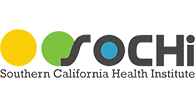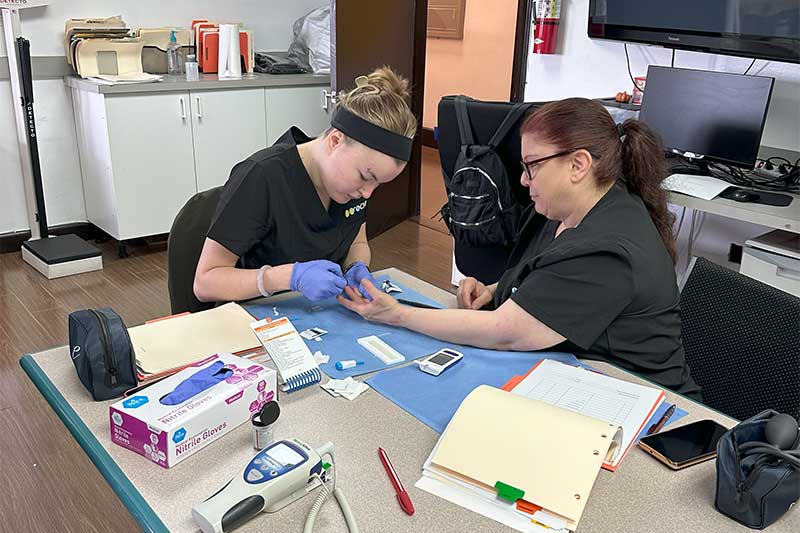Are you a medical assistant looking to expand your role and make a bigger impact in primary care? You’re in the right place. The healthcare landscape is evolving rapidly, and medical assistants (MAs) are stepping up to take on more responsibilities than ever before.
This blog post will explore the expanded roles of MAs in primary care, why it’s essential for patient outcomes, and how you can prepare yourself for these new challenges. Expect to learn about the growing importance of MAs, how this shift benefits both patients and healthcare providers, and actionable tips to enhance your skills and advance your career.
Discover the Top 8 Why Medical Assistants Are Crucial To Primary Care
Discover the top 8 reasons why medical assistants are crucial to primary care. Learn how they enhance patient care and improve healthcare efficiency.
1. Increased Demand for Healthcare Services
The demand for healthcare services is skyrocketing due to an aging population and increased access to health insurance. This surge has created a need for more hands on deck, particularly in primary care settings. Medical assistants are perfectly positioned to fill this gap. They can take on tasks that free up physicians and nurse practitioners, allowing them to focus on more complex cases.
Cost-Effective Healthcare Solutions
In an era where healthcare costs are a significant concern, utilizing medical assistants effectively can lead to substantial savings. By performing routine tasks and administrative duties, MAs help reduce the overall cost of care. This benefits not just the healthcare facility but also the patients who receive timely and efficient care.
Enhancing Patient Experience
Medical assistants often serve as patients’ first point of contact. Their role in patient education, support, and follow-up care can significantly impact patient satisfaction. When patients feel heard and cared for, they are more likely to adhere to treatment plans and maintain regular follow-ups, leading to better health outcomes.
2. Expanded Clinical Responsibilities
Performing Advanced Procedures
Gone are the days when medical assistants were limited to taking vitals and drawing blood. Today, they are trained to perform more advanced procedures such as administering injections, managing wound care, and conducting certain diagnostic tests. This expanded scope of practice allows for more comprehensive patient care within primary care settings.
Medication Management
Medical assistants are now playing a crucial role in medication management. This includes not only administering medications but also educating patients about their prescriptions, potential side effects, and the importance of adherence. Effective medication management can prevent complications and improve overall patient health.
Telehealth Support
With the rise of telehealth, medical assistants are taking on new responsibilities in this digital space. They assist in setting up virtual consultations, ensuring all necessary patient information is available, and following up with patients post-consultation. This provides a seamless experience for both patients and healthcare providers.
3. Administrative and Coordination Roles
Patient Records Management
Accurate and up-to-date patient records are crucial for effective healthcare delivery. Medical assistants are increasingly responsible for managing electronic health records (EHRs), ensuring that all patient information is accurate and readily accessible. This role is vital for coordinating care across various healthcare providers.
Appointment Scheduling and Follow-Ups
Managing appointments and ensuring patients adhere to their follow-up schedules is another critical role for medical assistants. They coordinate with patients to arrange appointments, send reminders, and follow up on missed visits. This helps in reducing no-show rates and ensures continuity of care.
Insurance Liaison
Dealing with insurance claims and reimbursements can be cumbersome. Medical assistants often liaise between the healthcare provider and the insurance companies. They ensure all the necessary documentation is in place, facilitating smooth and timely reimbursements.
4. Enhancing Patient Education and Support
Chronic Disease Management
Medical assistants are becoming pivotal in managing chronic diseases such as diabetes, hypertension, and asthma. They provide patients with essential education on managing their conditions, including lifestyle modifications, medication adherence, and monitoring techniques.
Mental Health Support
Mental health is integral to overall health, and medical assistants are increasingly involved in providing mental health support. They screen patients for mental health issues, offer initial counseling, and coordinate with mental health professionals for further care.
Health Promotion Activities
From organizing health fairs to conducting community outreach programs, medical assistants play a significant role in promoting health and wellness. These activities help educate the public about preventive measures, early detection, and the importance of regular health check-ups.
5. Adapting to Technological Advancements
EHR Systems Proficiency
Proficiency in Electronic Health Record (EHR) systems is no longer optional for medical assistants. They must navigate these systems to input patient information accurately, retrieve data swiftly, and ensure seamless coordination among healthcare providers.
Utilization of Medical Software
Medical software tools are becoming increasingly sophisticated. Whether it’s scheduling software, patient management systems, or telehealth platforms, medical assistants must be well-versed in these technologies to streamline operations and improve patient care.
Continuous Learning and Certification
The healthcare landscape continually evolves, and staying updated with the latest advancements is crucial. To enhance their skill set, medical assistants should pursue continuous education and obtain certifications in specialized areas such as phlebotomy, EKG, or medical billing and coding.
6. Collaborative Healthcare Environment
Working with Physicians and Nurses
Collaboration is key in a healthcare setting. Medical assistants work closely with physicians, nurses, and other healthcare professionals to ensure comprehensive patient care. This teamwork is essential for diagnosing, treating, and managing patient conditions effectively.
Interdepartmental Coordination
Effective healthcare delivery often requires coordination among departments such as radiology, laboratory, and pharmacy. Medical assistants facilitate this coordination, ensuring all necessary tests are conducted, results are communicated, and treatments are administered promptly.
Patient Advocacy
Medical assistants often advocate for patients, ensuring that their concerns are heard and addressed. They are crucial in bridging the gap between patients and healthcare providers, ensuring patients receive the best care.
7. Professional Development and Growth
Continuing Education Opportunities
Continuing education is vital for career advancement. Medical assistants should take advantage of courses, workshops, and seminars to stay updated with the latest trends and advancements in healthcare. This not only enhances their skills but also opens up new career opportunities.
Specialization Options
Specializing in pediatrics, geriatrics, or cardiology can make medical assistants more valuable to healthcare providers. Specializations allow MAs to focus on specific patient populations, providing more targeted and effective care.
Networking and Mentorship
Building a professional network and seeking mentorship can significantly impact a medical assistant’s career. Networking provides opportunities for learning and growth, while mentorship offers guidance and support from experienced professionals in the field.
8. Legal and Ethical Considerations
Understanding the Scope of Practice
It’s crucial for medical assistants to understand their scope of practice and adhere to it strictly. This ensures that they perform tasks they are qualified for, maintaining the integrity and safety of patient care
Patient Confidentiality
Maintaining patient confidentiality is a fundamental ethical requirement. Medical assistants must ensure that all patient information is handled with the utmost care and discretion, adhering to HIPAA regulations.
Ethical Decision-Making
Medical assistants often face ethical dilemmas in their practice. It’s essential to have a strong ethical foundation and make decisions prioritizing patient well-being, respect, and dignity.
Conclusion
The role of medical assistants in primary care is expanding, offering numerous opportunities for career growth and professional development. MAs can significantly impact patient care and healthcare delivery by taking on more clinical and administrative responsibilities. If you’re a medical assistant, now is the time to seize these opportunities, enhance your skills, and take your career to the next level. Stay committed to continuous learning, seek specialization, and prioritize patient care. The future of primary care is bright, and medical assistants are leading the way.
For further resources and to connect with a community of like-minded professionals, consider joining professional associations and attending industry conferences. Your journey toward an expanded role in primary care starts now.




